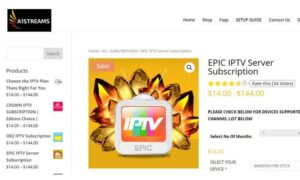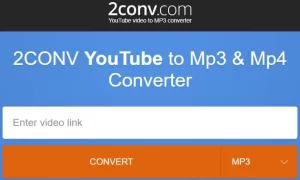The Master of Education (MEd) in Instructional Technology is an advanced degree program that focuses on integrating technology in the preK-12 schools to strengthen and transform teaching and learning. The program provides the knowledge and skills needed to incorporate technology effectively into preK-12 curricula, instruction, and assessment; to develop expertise in current and emerging instructional technologies; to gain deep understanding of the role of technology in the contemporary school; and to lead change efforts at the classroom, school, and district levels.
The program combines three areas of study related to the preK-12 schools:
* Curriculum and Instruction
* Technology Integration
* Leadership
The program’s core courses teach design and development skills in the areas of technology, pedagogy, and management principles and practices. In addition, you can choose to further focus your studies in public and private learning environments, educational institutions, and corporate and military contexts by choosing a specialization that best fits your career goals. Faculty members who are practicing professionals in the field will guide you as you:
* Design, develop, and implement instructional materials and solutions that both integrate learning technology and align with learning outcomes.
* Analyze learning contexts to develop appropriate, workable instructional solutions.
* Plan, manage, lead, and evaluate instructional design and technology projects and programs.
* Apply current research and theory to the practice of instructional design and learning technology integration.
This program covers a range of education and training from K-12 to universities to corporate and government environments. Not only does this degree have specializations in K-12 and Adult Learning – Higher Education, but the specialization Adult Learning – Organizations for corporate, military, and non-profit training gives students even more options for focusing their studies. Our graduates have the potential to seek careers in all types of environments that hire instructional designers, curriculum specialists, or instructional technologists.
Graduates of the program will be able to:
* Integrate current and emerging technologies into curriculum, instruction, and assessment, to strengthen and transform teaching and student learning.
* Use a range of technologies to communicate and collaborate with students, colleagues, parents, and other audiences.
* Apply technology to meet the needs of a diverse school population.
* Create multimedia and Web-based products that support instruction.
* Develop standards-based, technology-supported lessons that promote global perspectives.
* Provide professional development for teachers and other educators, including about integrating technology to promote student learning.
* Lead and work with others to develop a vision for technology integration in schools, including designing technology plans and budgets; assuring access, and acquiring resources.
* Apply classroom and school-based data, research, and reflection to make sound instructional decisions. advocate for change, and build program support.
Overview of Online Master of Education in Instructional Technology Programs
These programs are designed to help students work as online program instructors or become more proficient at using technology in the classroom and integrating technology into the curriculum.
They are applicable to both classroom instructors and administrators such as principals. Programs cover subjects such as various types of digital media and types of software, curriculum adaptation to enhance the use of technology in the classroom and the unique facets of an online education.
Master of Education in Instructional Technology Program Information and Requirements
This master’s degree program takes about two years to complete and can be conducted entirely online. Some programs require that students already have a teaching credential, while others only require a bachelor’s degree. Most schools have technology requirements in place for online students, such as requiring a high-speed Internet connection, a specific operating system or hardware like a video-capable Web camera and CD-ROM drive.
Common Master of Education Instructional Technology Classes
The coursework in this type of program focuses on both technology specifics and the educational potential of various types of technology. Below are examples of some courses that a student may encounter in these programs.
Computer Programming Course
This type of course introduces students to programming languages and basic programming skills. Discussion on the use of computer programming to aid in classroom instruction may be discussed.
Authoring Tools Course
This type of course looks at topics such as visual design and the use of multimedia in exploring curriculum content. Topics such as the integration of graphics, video and audio elements for the purpose of creating multimedia presentations and the effective use of various media forms for educational instruction may also be covered.
Statistics Course
This type of class looks at research methods and the use of statistics in representing data. The use of computers in delivering research findings and rendering educational data may also be covered.
Career Information for Graduates
Graduates from a Master of Education in Informational Technology program may choose to implement their new knowledge in a physical classroom or through a new career as an online instructor in a virtual academy.
Students who want to continue their education can pursue a doctoral degree program in instructional or educational technology. This program is designed for individuals who want to pursue higher-level administrative positions or teach at the university level. These programs may be available through a distance education format.
Did you know you can earn college degree online? Well, we have gathered all the information you need to know about online colleges and degrees. Online Colleges and schools offer various study courses including education, business, healthcare, criminal justice, engineering, liberal arts, graphic design, human services, paralegal, animal husbandry, nursing, and many others, same as traditional campus degree programs do.
Online colleges have improved a lot lately. Many of modern approved online colleges are creating impressive studying systems for different types of learners. Simultaneously, many traditional colleges and universities are building online expansion programs. Almost every online course can be concluded without entering a classroom; though, contingent to particular study arenas, some of the online courses may need extra on-site laboratory sessions which prepare students with hands-on experience in the specific field.
Online colleges and universities develop expertise for earning undergraduate and graduate certificates for specializations in study areas. Some degrees can be earned in as little as ten months, while others will require a greater length of time.
You May Qualify For Financial Aid.



